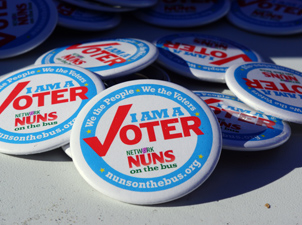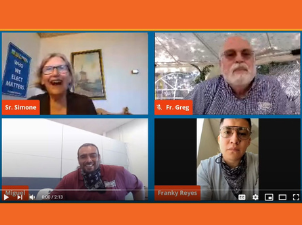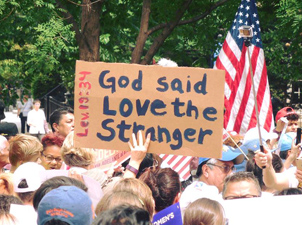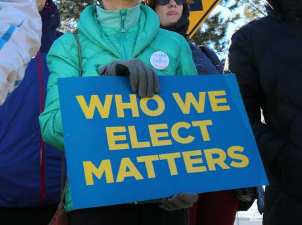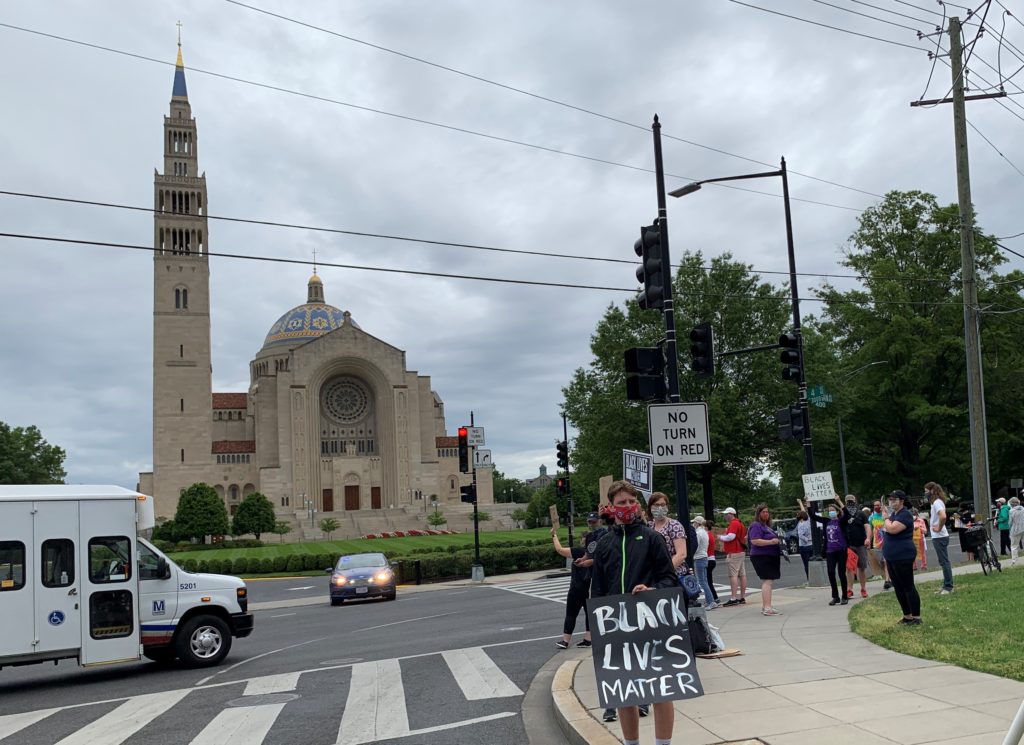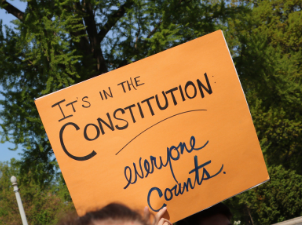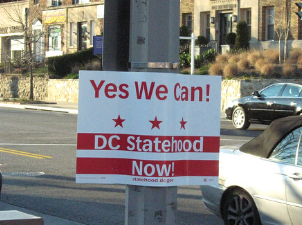
Catholic Sisters to President Trump: Count Every Vote
Sister Simone Campbell, SSS
November 4, 2020
On November 4, 2020, over 1,500 Catholic Sisters from across the United States sent a letter to President Trump urging him to respect our democracy and count every vote.
Read the letter below, or download as a PDF
November 4, 2020
President Donald J. Trump
The White House
1600 Pennsylvania Avenue NW
Washington, DC 20500
Dear President Trump,
A few weeks before this historic election, Pope Francis published a new encyclical where he wondered “what do certain words like democracy, freedom, justice or unity really mean?” Have they, as the Pope writes, been “bent and shaped to serve as tools for domination, as meaningless tags that can be used to justify any action?”
That question has never been clearer than today, when some elected officials make the immoral choice to hold onto power at any cost, including disenfranchising thousands, denying their most sacred gift: their voice.
Each vote left uncounted represents a soul with a story. Over the last several weeks, Sisters virtually visited over 60 communities across the country where people came together to share their struggles with one another. It was clear from coast to coast that there are urgent needs to keep one another safe from disease, end structural racism, fix our broken immigration system, support social programs that pull families out of poverty, and expand health care access for all people. This election season reminded many of the equally sacred priorities of our shared faith in these challenging times.
People are afraid of losing their healthcare, looking at the ashes of a home destroyed by a wildfire, searching for solutions to end systemic racism, wondering where their next paycheck will come from, or mourning the loss of a relative to COVID-19. Across the country, these Americans took their country up on its promise: that they could vote to elect leaders and chart a new course. Now we see their votes discounted in our election process.
Americans know that thoughts and prayers alone will not end their pain and suffering and that they must act. That’s why it should be no wonder that we saw a historic number of people cast a ballot. Each of these individuals must have a say in who represents them in government. We must ensure that every vote is counted, in accordance with applicable laws, no matter how long the process takes.
Catholic Social Teaching urges us to act on behalf of those who are marginalized in our society. We have a responsibility to one another, not to help one political party win, but to live up to our values. In the words of Pope Francis we must act “In the name of the poor, the destitute, the marginalized and those most in need, whom God has commanded us to help as a duty required of all persons, especially the wealthy and those of means.”
We took vows as Catholic Sisters, and you took a vow to uphold the Constitution.
Stay true to your vow. Count the votes. Ensure the United States lives up to its promise. Every voice — and every vote — is sacred, especially the most marginalized among us.
Sincerely,
Sister Simone Campbell, SSS
Executive Director, NETWORK Lobby for Catholic Social Justice
And more than 1,900 Catholic Sisters from across the United States.







